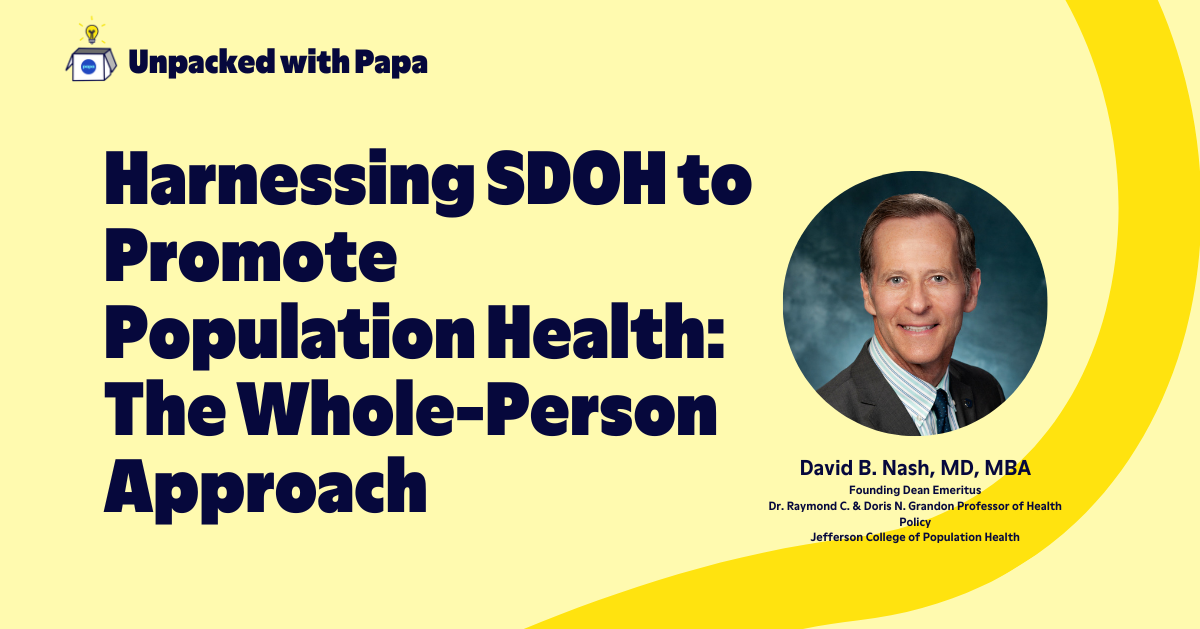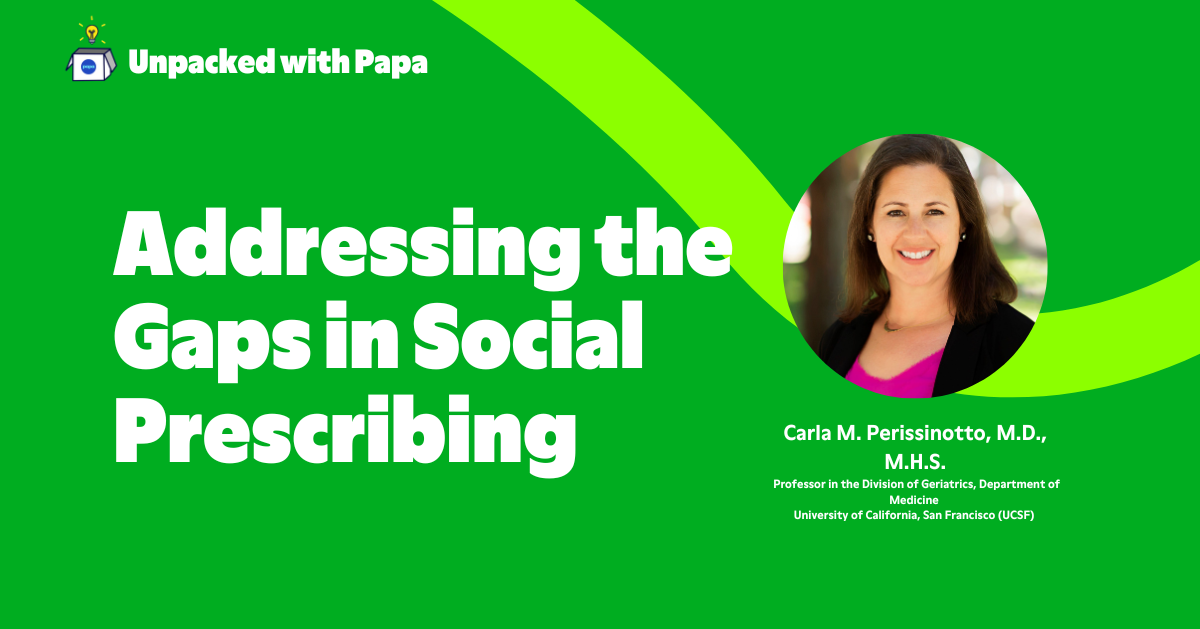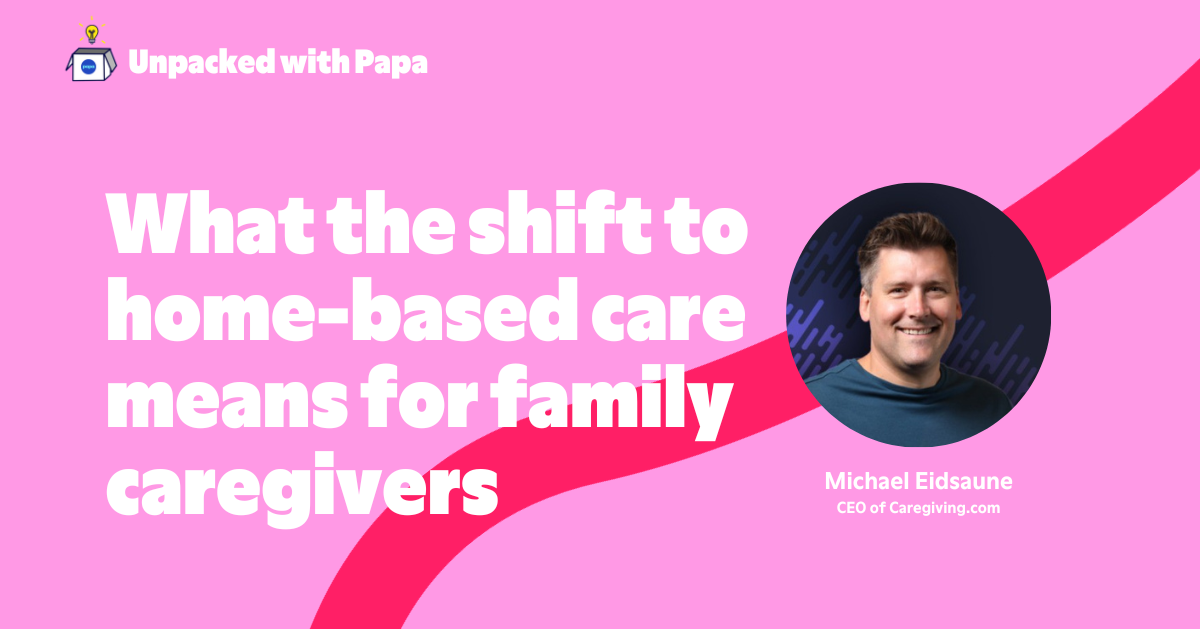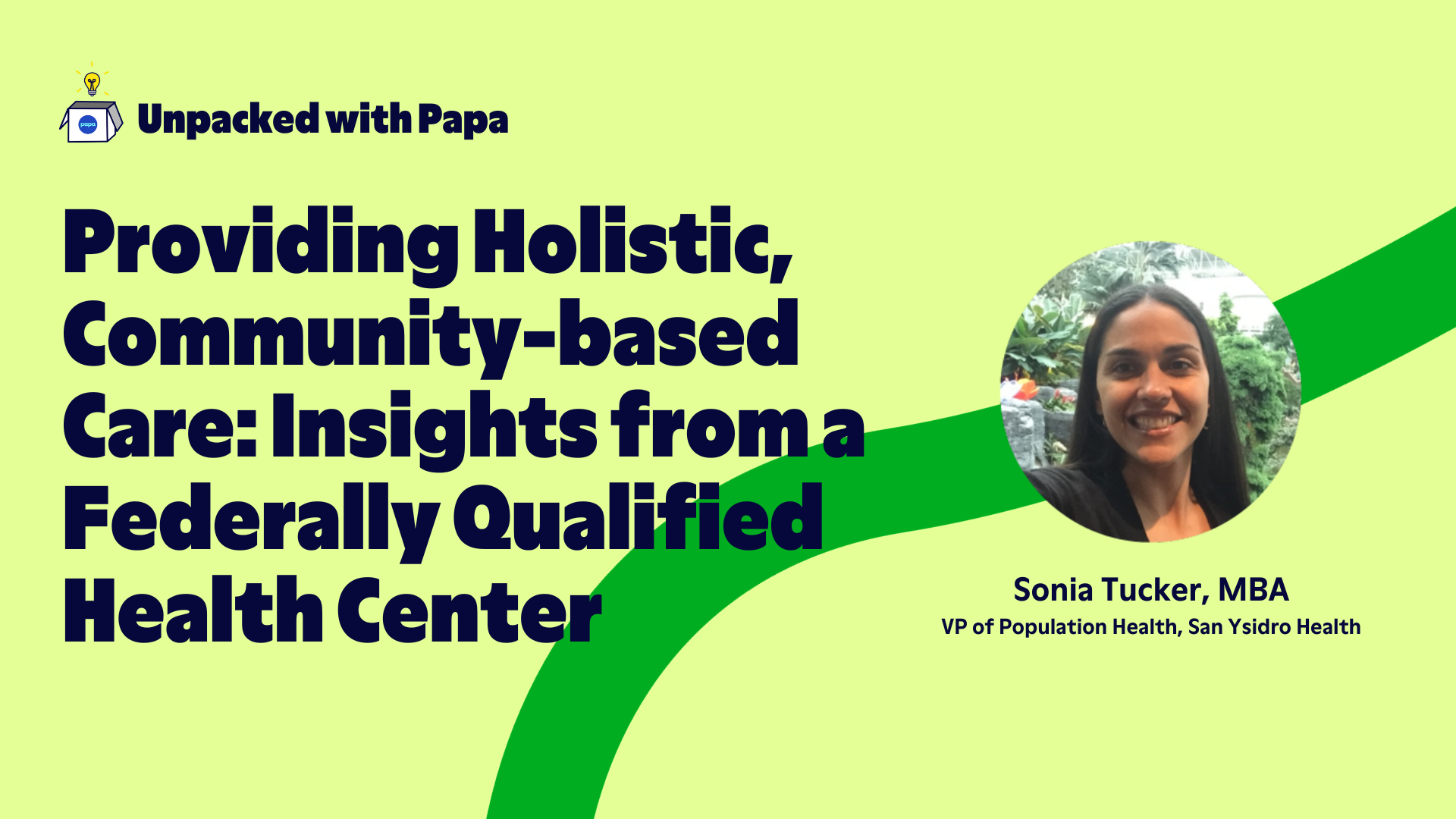
Unpacked with Papa
Social justice advocate, Georgina Dukes-Harris, MHA, reminds us why we cannot forget the “social” in social drivers of health. While resources for tangible needs, like housing, transportation, and food, are undeniably essential, Georgina says they alone are not sufficient for genuine healing. There must be a thriving community of trusted resources in place, and finding ways to ensure people feel like they’re part of such a community is the “special sauce” needed for true healthcare transformation.
About the speaker
Georgina Dukes-Harris, MHA, a dynamic social justice advocate and Founder & CEO of Swishvo, began her journey at Clemson University, where she honed her skills overseeing clinics and enhancing emergency patient access in low-income, rural areas. Her commitment to addressing social determinants of health became evident during her 14-year career, where she connected hospitals with community health initiatives at major academic medical centers across the Southeast, including Duke Health and the Medical University of South Carolina. A master's degree in health administration from the Medical University of South Carolina solidified her expertise in healthcare operations.
In 2018, Georgina transitioned to the tech sector, joining Unite Us and spearheading the nation's first coordinated care network in North Carolina, NCCARE360. Under her leadership, Unite Us expanded to 11 states, positively impacting millions. Georgina's remarkable journey has earned her prestigious accolades, including recognition as a White House Administration PREVENTS speaker, the Leaders in Diversity award, and the Emerging Healthcare Leader Award. Notably, she received the Women in Business-Community Outreach award and garnered a nomination for Forbes 30 under 30 in healthcare.
Now, as the founder of Swishvo, Georgina is a dynamic leader at the intersection of healthcare, technology, and social impact. She brings a unique perspective and unwavering commitment to addressing healthcare disparities. Her holistic vision goes beyond conventional approaches, aiming to provide individuals with comprehensive care that enriches their entire well-being. Georgina's dedication to creating positive change has positioned Swishvo as a beacon of innovation in the industry, with a transformative approach to addressing the root causes of health disparities.
As a thought leader and influencer, Georgina leverages her expertise to drive conversations around holistic healthcare, dismantling health inequities, and the future of health technology. Her entrepreneurial spirit, coupled with a growth mindset, sets the tone for Swishvo's trajectory as a socially responsible, impactful force in the healthcare ecosystem.

More episodes

Unpacked with Papa: Ep 1

Unpacked with Papa: Ep 2

Unpacked with Papa: Ep 3
.png)
Unpacked with Papa: Ep 4

